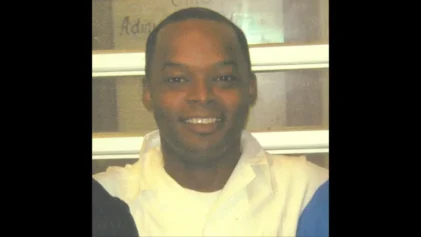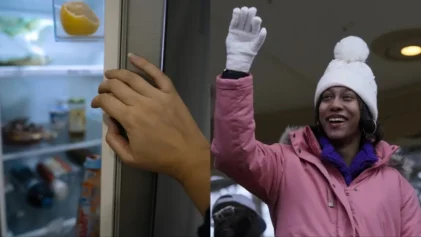A federal judge has ruled that TikTok is not responsible for the death of a 10-year-old who died after allegedly taking part in a challenge that encouraged users to choke themselves.
Tawainna Anderson filed the lawsuit against TikTok and its parent company in May, just six months after she found her daughter, Nylah Anderson, hanging from a purse strap in her closet.

The lawsuit says that there was evidence on Nylah’s phone that she attempted to do the “Blackout Challenge.” Still, Pennsylvania District Court Judge Paul Diamond ruled in favor of TikTok on Tuesday, granting its motion to dismiss the claim.
The company argued that it could not be held liable for content posted by a third party on its app based on federal communications policy.
“Defendants did not create the Challenge; rather, they made it readily available on their site,” Diamond wrote in a memorandum. “Defendants’ algorithm was a way to bring the Challenge to the attention of those likely to be most interested in it. In thus promoting the work of others, Defendants published that work — exactly the activity Section 230 shields from liability.”
Section 230 of the Communications Decency Act says: “No provider or user of an interactive computer service shall be treated as the publisher or speaker of any information provided by another information content provider.”
Lawyers for the girl’s mother argued that TikTiok purposely “thrust” the challenge in front of Nylah by setting its algorithm to populate videos promoting the challenge on her personalized recommended content page, “For You Page.”
“The TikTok Defendants’ algorithm determined that the deadly Blackout Challenge was well-tailored and likely to be of interest to 10-year-old Nylah Anderson, and she died as a result,” the lawsuit says.
The claim further says that Anderson did “seek to hold” the company “liable as the speaker or publisher of third-party content and instead intends to hold the TikTok Defendants responsible for their own independent conduct as the designers, programmers, manufacturers, sellers, and/or distributors of their dangerously defective social media products.”

The lawsuit also accused TikTok and its algorithm of negligence and “psychological programming and manipulation on an unprecedented scale, particularly among children.”
The judge concluded that Anderson’s attorneys’ arguments are “inextricably linked” to how TikTok publishes third-party content, so its immunity under Section 230 still stands.
In May 2008, the Texas Court of Appeals rejected a negligence claim filed by the parents of a 13-year-old who was sexually assaulted by another user.
They claimed MySpace failed to implement safeguards to prevent minors from lying about their age and creating profiles that allow them to community with sexual predators. The court ruled that the claims were barred by Section 230.
A federal judge in Missouri also ruled that the owners of Backpage.com had Section 230 immunity when a 14-year-old runaway accused the website of aiding with her sex trafficking.
Anderson’s attorney Jeffrey Goodman said in a statement that the communications law “was never intended to allow social media companies to send dangerous content to children.”
“The Anderson family will continue to fight to make social media safe so that no other child is killed by the reckless behavior of the social media industry,” Goodman said in an email to Atlanta Black Star.
“The Andersons will continue advocating for the protection of our children from an industry that exploits youth in the name of profits,” He added.
A Centers for Disease Control and Prevention bulletin from 2018 shows a “Choking Game” challenge has existed since at least 2008. Reports show that at least half a dozen children have died from taking part in the challenge in the past year. The Social Media Victims Law Center filed two lawsuits on behalf of Lalani Walton, 9, of Texas, and Arriani Jaileen Arroyo, 8, of Wisconsin in July.
A 2020 Journal of Neurology & Neurophysiology has linked social media use to dopamine, a chemical in the brain that impacts motivation.
“Overuse of the platforms and the application algorithm by individuals may be detrimental to their physical and mental well-being. There should therefore be increased awareness campaigns to address this contemporary issue and help to balance its impact on society; maximizing its positive utility and minimizing its potential adverse impacts,” researchers wrote.


